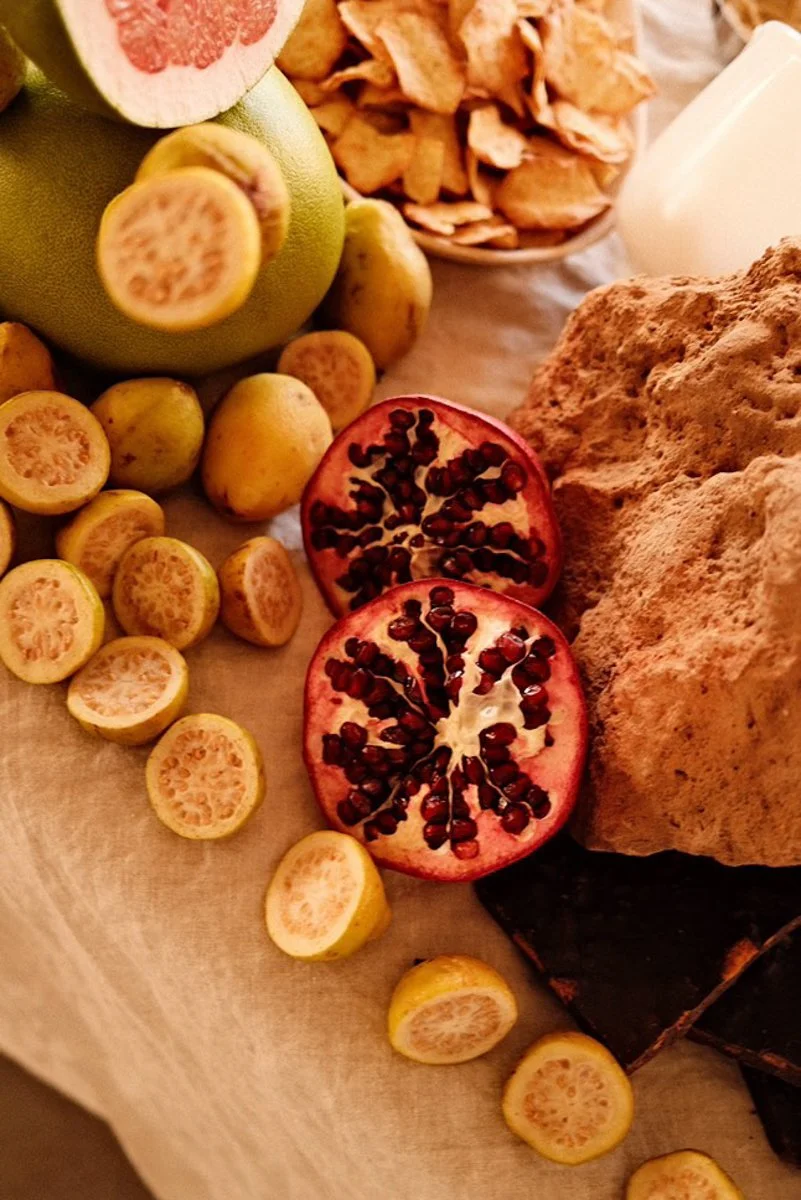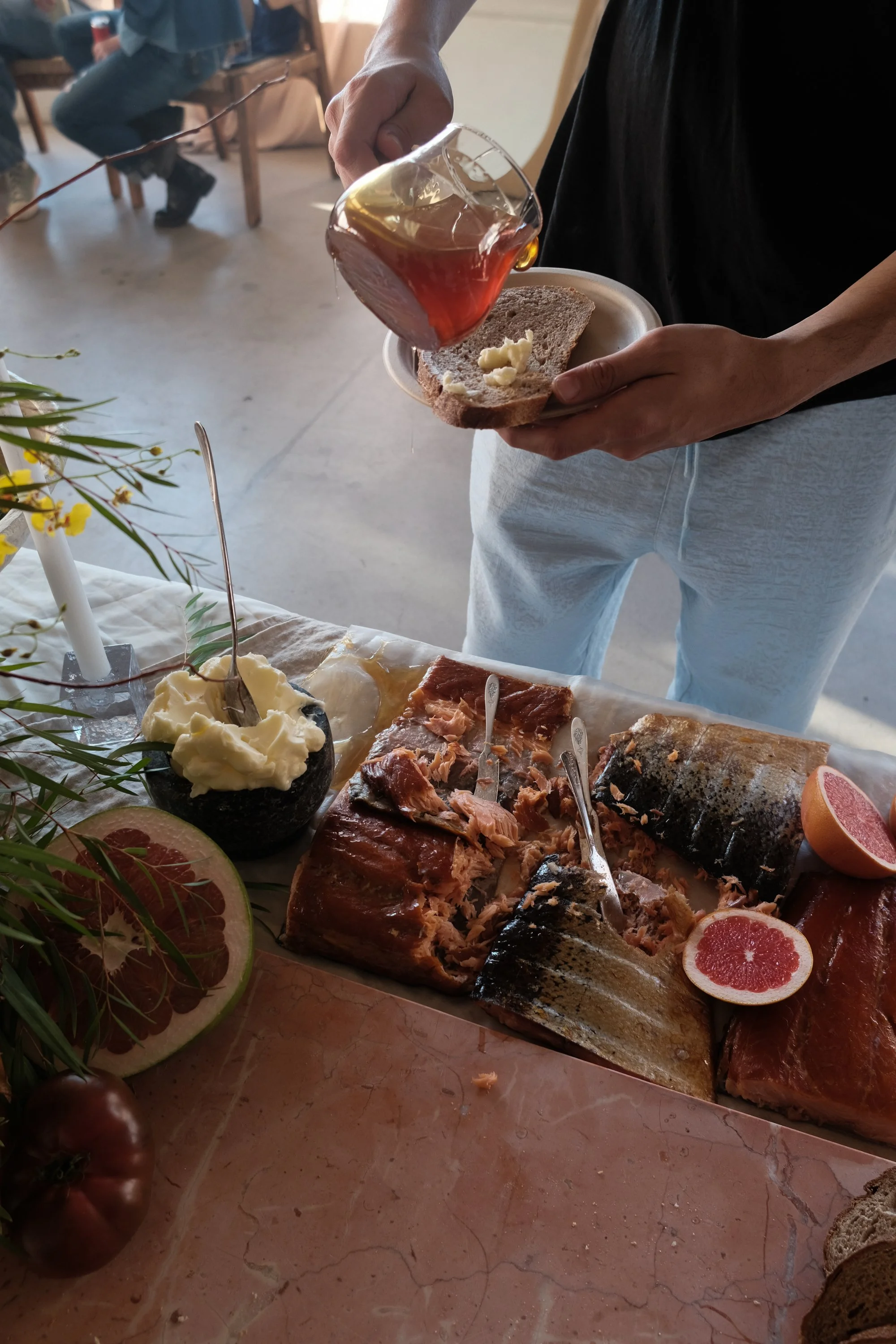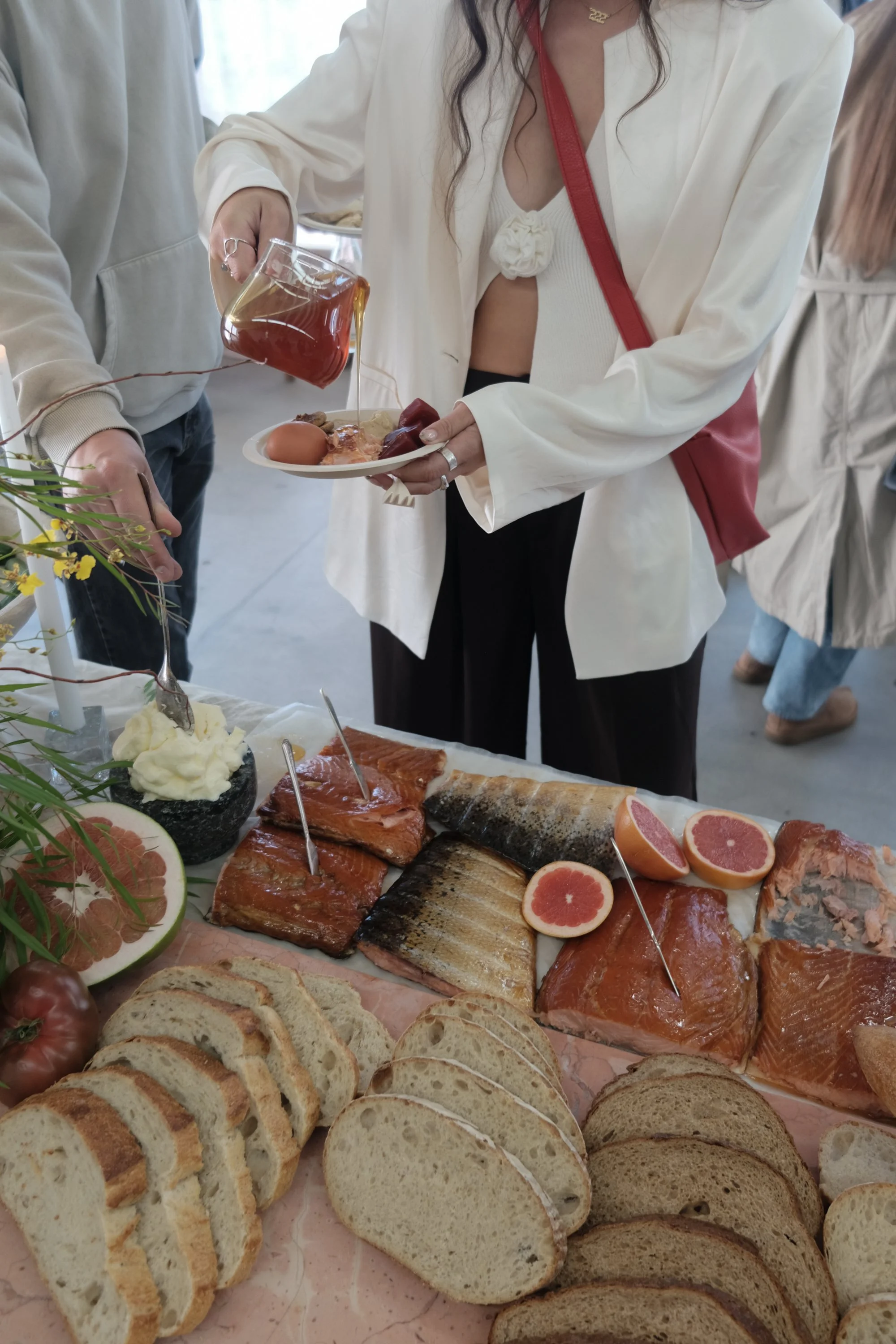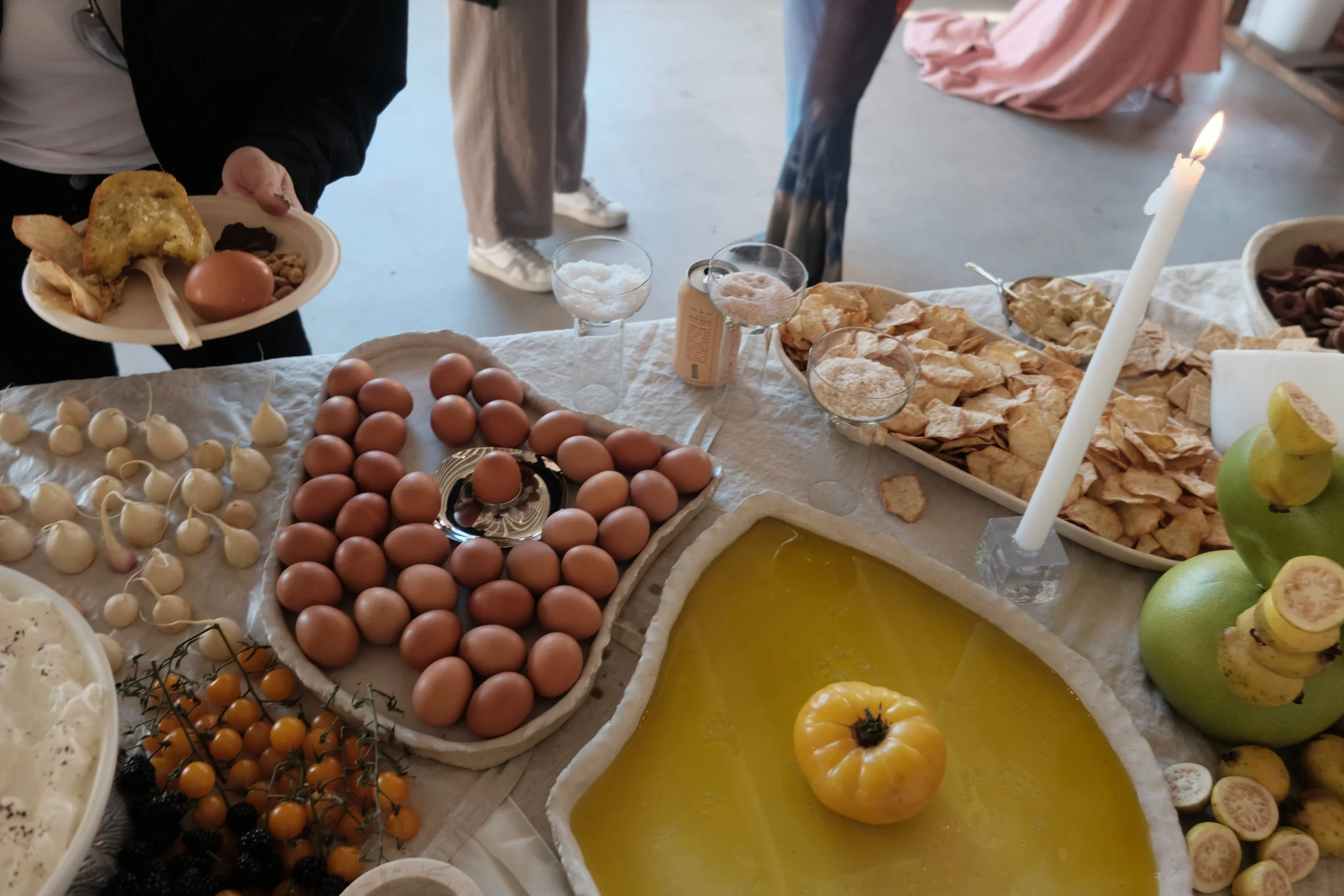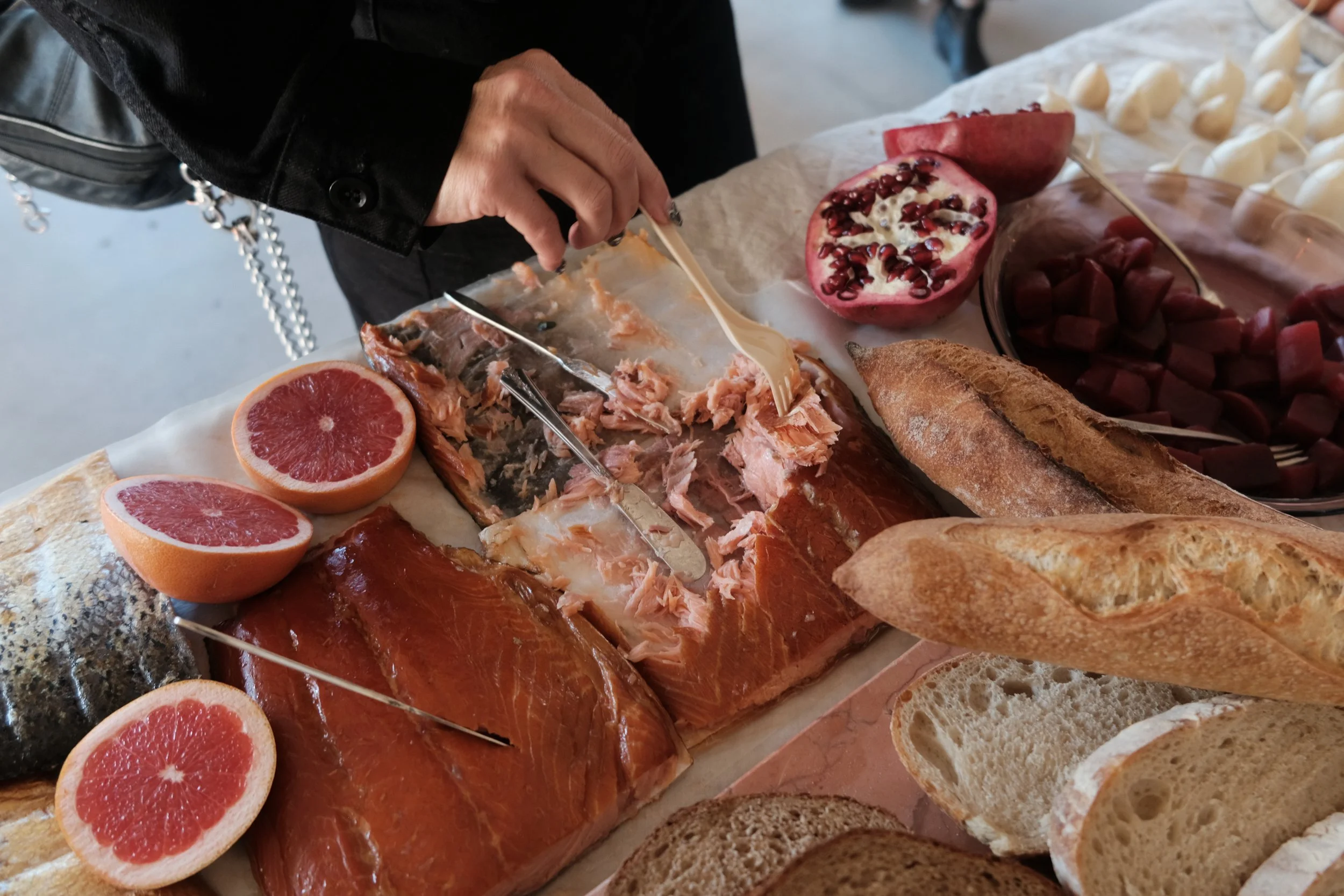Composition
Industry:
Editorial, Food Science, Experiential
Location:
Brooklyn, NY & Los Angeles, CA
What we brought to the table:
Creative Direction, Art Direction, Narrative, Shoot Production, Direction, Photography, Video, Event Production, Activation Design, Panel, Asset Creation, Sponsorship
SnackTime created “Composition”, a multi-sensory editorial experience exploring the beauty of our food and its impact on women’s brain health.
Spanning two coasts and multiple disciplines, we designed a full creative ecosystem — from concept to campaign to live event — that reimagined nourishment as a tool of self-respect, cognitive resilience, and collective transformation.
At its core, we showcased five ingredients known to support women’s cognitive function, mood, and memory.
We traced their neurobiological benefits and cultural significance through: editorial photography & original video curated with science-backed storytelling and narration. An event that included a live neuroscience panel, community workshop and full course tasting with mindful eating prompts for each ingredient.
The Personal Why
This project is rooted in personal conviction.
SnackTime co-founder Marley’s experience with a rare brain disease and complex autoimmune history inspired her passion for food as medicine and the relationship between narrative and applied neuroscience for behavior change and cultural transformation.
Anisha’s background in psychology and her father’s work as a neuroscientist at the University of Chicago inspired a lifelong fascination with the mind.
Together, we built a world where science meets sensation, beauty meets behavior change, and brain health becomes a cultural conversation.
The Gallery
Fish: The Soothing Swim
Scientific Fact:
Fish primarily affect the prefrontal cortex, a region of the brain involved in executive functions such as decision-making, attention, and complex thinking. This impact is due to the high levels of omega-3 fatty acids (particularly EPA and DHA) found in fish, which are crucial for maintaining brain structure and function.
Research published in The American Journal of Clinical Nutrition has shown that omega-3 fatty acids support the health of the prefrontal cortex by promoting synaptic plasticity and reducing inflammation. These fatty acids are essential for cognitive processes and have been linked to improved memory, attention, and mood. For women, omega-3s are particularly important as they help mitigate the risk of cognitive decline and mood disorders, such as depression, which are more prevalent among women, especially during hormonal changes such as menopause.
Mindful eating prompt: Think about the wild streams, rivers or seas this being has lived through. Flow and resistance, speed and soothe, it’s traveled far and so will you. Let this essence swim through you.
What is one thing you can allow yourself to move through with a little more ease? What might this freed-up energy allow you to feel? To do?
Cabbage: A Globe in Bloom
Scientific Fact:
Purple cabbage primarily affects the cerebral cortex, particularly areas involved in higher cognitive functions such as problem-solving, language, and sensory processing. This impact is largely due to purple cabbage’s high levels of anthocyanin, which are potent antioxidants that help protect the brain from oxidative stress and inflammation.
A study published in The Journal of Nutritional Biochemistry found that anthocyanin from purple cabbage improve cognitive function by enhancing brain plasticity and protecting neurons from damage. This is crucial for women's brain health, as oxidative stress and inflammation are linked to cognitive decline and neurodegenerative diseases, conditions that can disproportionately affect women as they age. By reducing these risks, purple cabbage supports overall cognitive health and helps maintain mental clarity.
Mindful eating prompt: We invite you to admire the petals of the purple cabbage, and notice that when you chop into it, the design inside resembles the physical pathways of the brain. There is so much of us reflected in the beauty around us.
What is one way you can identify your beauty in nature — the color of your eyes? The shape of your legs? The way your breath moves like the sea or the wind?
Eggs: The Golden Mind
Scientific Fact:
Eggs primarily affect the hippocampus, a brain region essential for memory formation and learning. This impact is due to the high levels of choline found in eggs, which is a critical nutrient for the synthesis of acetylcholine, a neurotransmitter involved in memory and cognitive function.
A study published in Frontiers in Aging Neuroscience found that adequate choline intake is associated with better cognitive performance and enhanced memory. Choline supports the health of the hippocampus by facilitating the production of acetylcholine, which is crucial for memory consolidation and learning processes. For women, maintaining optimal choline levels is particularly important as they are at higher risk for cognitive decline and neurodegenerative diseases, such as Alzheimer's disease, especially in later life.
Mindful eating prompt: Hold the mighty and delicate egg in the palm of your hand. Gently shake and observe the liquid distribution of weight. Strong and fragile, heavy and light just like us. Your hands can hold it all, even when it cracks.
What is one thing you want to give yourself permission to let go of? What do you need help holding? Who will you ask for help?
Blueberries: The Crown Jewel
Scientific Fact:
Blueberries have a notable impact on the hippocampus, a brain region crucial for memory and learning. Research indicates that the flavonoids in blueberries can enhance cognitive function by reducing oxidative stress and inflammation in the hippocampus, which is essential for preserving memory and preventing age-related cognitive decline. A study published in Frontiers in Nutrition specifically highlights that blueberry supplementation improves cognitive performance and memory in older women, demonstrating its potential benefits in mitigating age-related cognitive decline and supporting brain health.
Mindful eating prompt: Pop a blueberry in your mouth. Swirl it around and receive its smooth globe and ridged top. Use your tongue to place the blueberry between your top and bottom teeth. Bite as slowly as possible.
When else will you slow down and savor? How does it feel to be nourished by a moment?
Chard: The Rainbow Perspective
Scientific Fact:
Rainbow chard positively affects the prefrontal cortex, a critical region involved in executive functions such as decision-making, attention, and working memory. Rainbow chard is rich in nutrients like magnesium, vitamin K, and antioxidants, which contribute to the health of this brain region.
A study published in Neurobiology of Aging found that magnesium, which is abundant in rainbow chard, plays a key role in synaptic plasticity and cognitive function. This is particularly important for women, as magnesium deficiency has been linked to cognitive decline and mood disorders. Additionally, the antioxidants in rainbow chard help reduce oxidative stress and inflammation, further supporting cognitive health and reducing the risk of neurodegenerative diseases.
Mindful eating prompt: How many colors do you see in one leaf and stalk of rainbow chard? How many colors do you see in the whole bouquet? Taste the rainbow.
What are the brightest things about you? What are the deepest?
The Experience
Composition sparked cross-disciplinary connection between neuroscience, nourishment, and creative self-respect.
We made brain health visible through food.
We made knowledge unforgettable through beauty.
We proved that when storytelling engages the senses, it doesn’t just educate — it transforms.
Thank you to our amazing partners: Fellow, MOSS, Madre Mezcal, LAKA, Koatji, Estellar Coffee, Woody’s, Sistine & Ziba Foods.
Food Install by Allison Jacks














